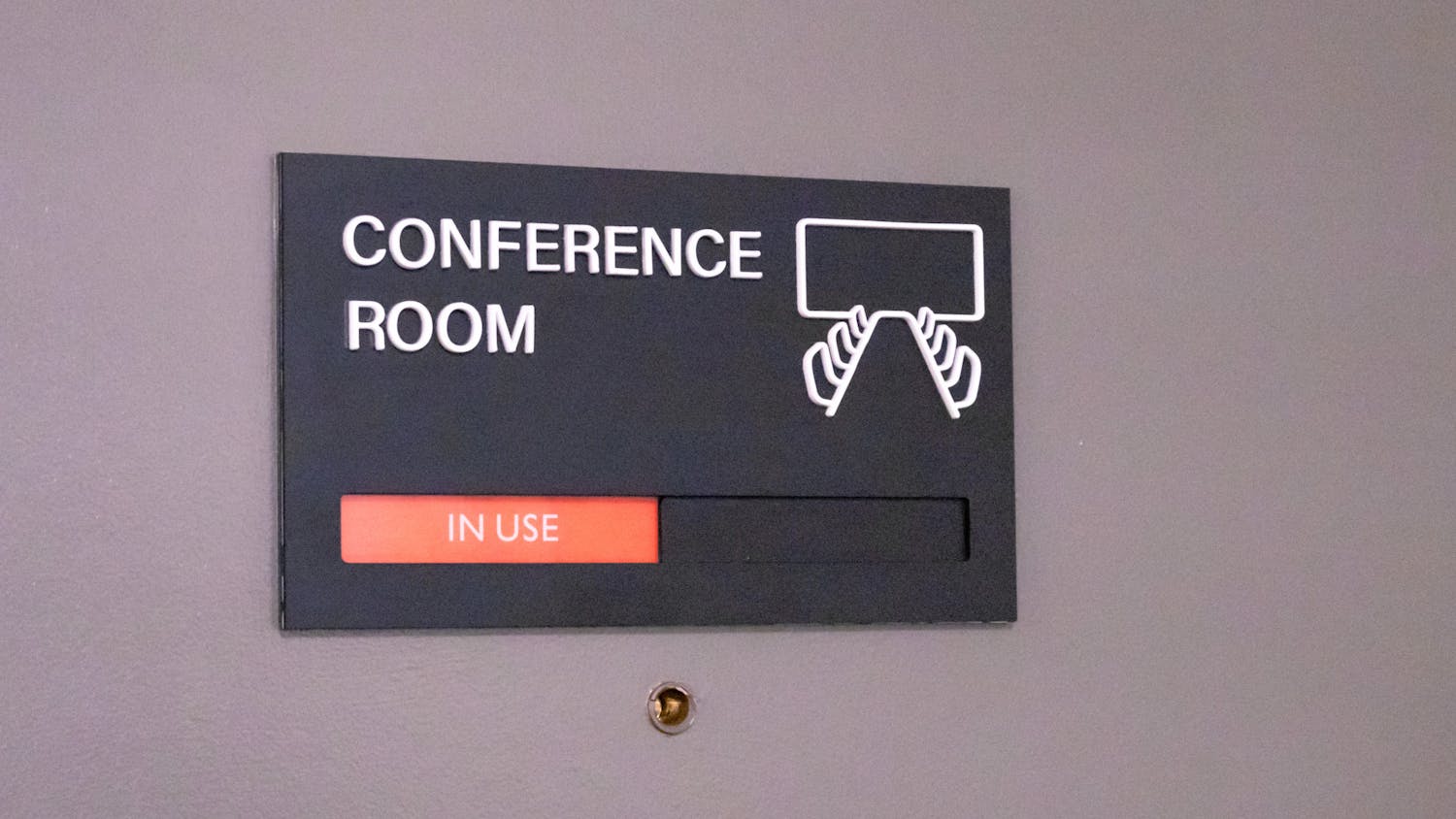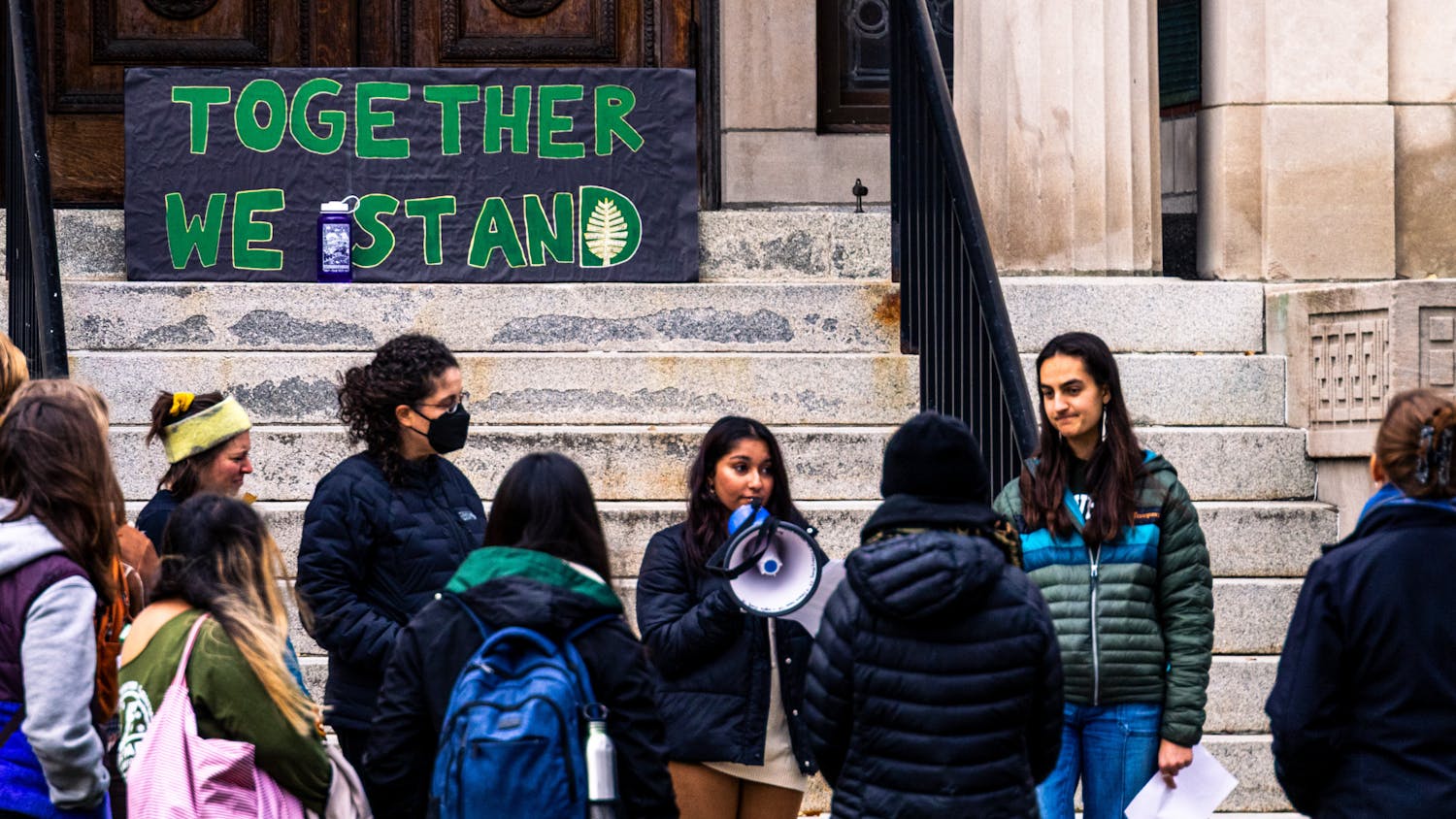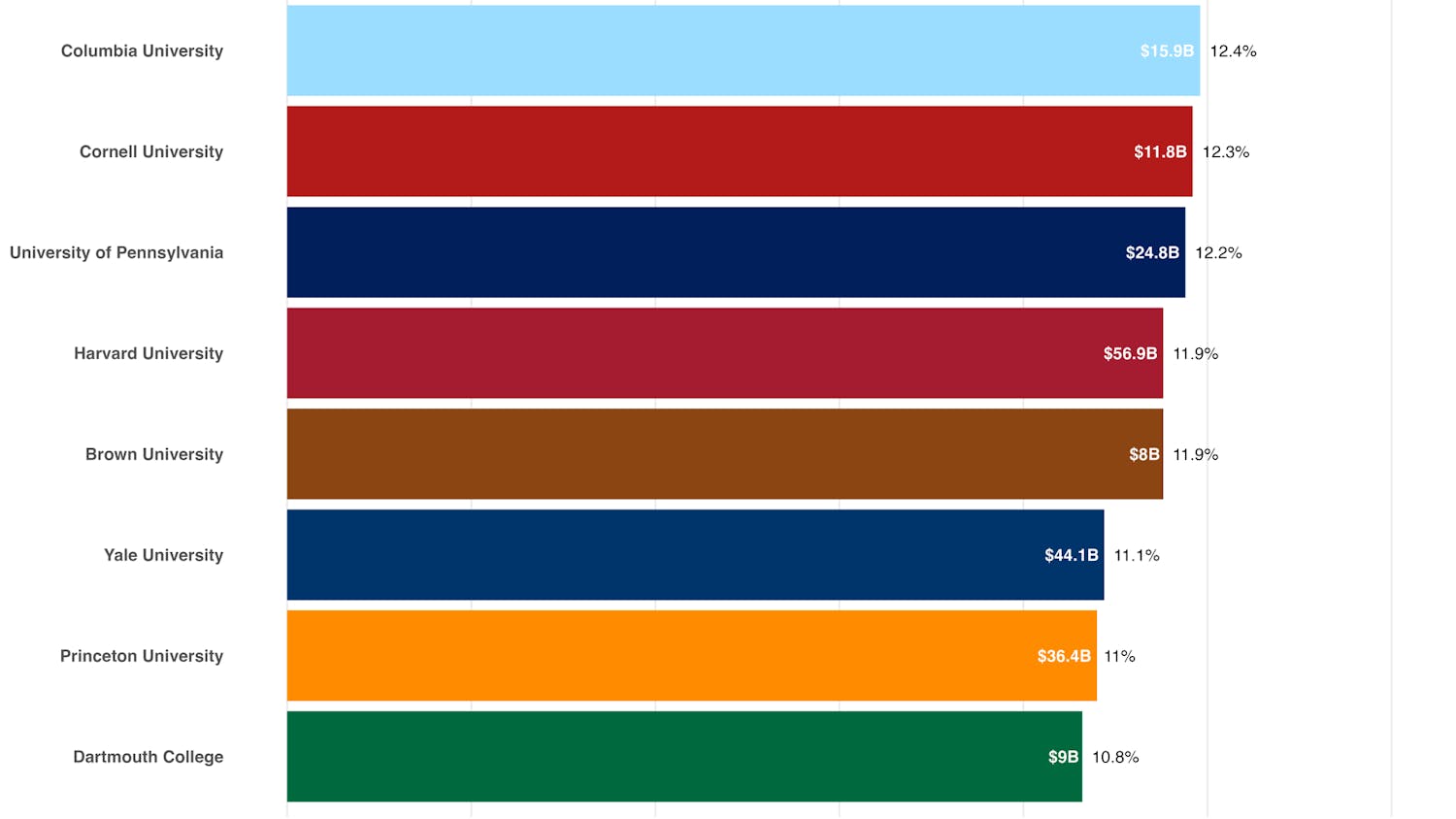Student Assembly presidential candidates Adrian Ferrari '14, Janine Leger '15, Andres Ramirez '14 and Kelly Wood '14 and vice presidential candidates Pallavi Kuppa-Apte '14 and Michael Zhu '14 spoke about Greek-related issues at a poorly attended debate hosted by the Greek Leadership Council on Sunday. GLC moderator Elliot Sanborn '14 hosted the debate.
The debate opened with a discussion of the way Student Assembly affects Greek life at the College. The candidates, five of whom are affiliated, agreed that the Assembly needs to act as a bridge between Greek organizations and the administration. Ferrari is the only unaffiliated candidate.
"We're here to be a representative of the student voice," Kuppa-Apte said. "The Greek community is a large part of that voice."
Leger suggested that the Assembly president begin attending GLC meetings to build a connection between the two groups and ensure that they work together.
Zhu said the Assembly needs to be careful not to interfere with GLC's work or enact policies that contradict existing GLC policies.
"Student Assembly is not here to govern other groups," he said. "We want to collaborate with them. The decisions need to be collective decisions."
Much of the debate centered on problems associated with the Greek system, including sexual assault. The candidates discussed the perception that Greek houses are exclusive and lack diversity.
Wood and Zhu support increasing sexual assault education for both affiliated students and incoming freshmen. They said though the mandatory Mentors Against Violence sessions for affiliated students are a good starting point, they are not enough.
"We need to keep the conversation going," she said. "The rate of sexual assault is unacceptable."
Ramirez spoke about his own experience working for the Mentors Against Violence program. He said very few men become facilitators, a role in which students lead peers in discussion about ways to reduce sexual assault on campus. He said he believes more men should join such programs.
Ferrari said the Assembly should support campus sexual assault prevention groups and help fund their programs. He suggested that the Assembly match the funds granted by the Student and Presidential Committee on Sexual Assault to students working on projects that aim to reduce sexual assault.
Ramirez said the College should use both "positive" and "negative" incentives when disciplining Greek houses. Currently, Greek houses whose members do not go to Mentors Against Violence programs are fined by GLOS. Ramirez said that houses that host multiple MAV programs should receive a reward.
Allowing more sororities to host events could help promote safe spaces for female students and decrease the occurrence of sexual assault, Kuppa-Apte said.
Leger, Ramirez and Kuppa-Apte said the Greek system is inherently exclusive, and recommended plans for the Assembly. Leger suggested having different houses pair together for a term and would make efforts to get to know each other.
Kuppa-Apte said that promoting community within dorms would help friendships outside the Greek system. She suggested that the College look into creating a residential college system.
"We could have a student's freshman floor remain as a community during their time at Dartmouth," she said. "People should be rushing because they want to and like the houses, not because they are trying to find a community."
Ferrari said the College needs to make sure that students who choose to rush do not feel pressured to do so.
Ramirez said getting rid of Greek life would increase, not decrease, exclusivity on campus.
"Without the Greek system, we'd be much more exclusive," he said. "Look at Middlebury or Williams. The campus would be very divided into groups by athletes, campus groups and so on."
The candidates all agreed that Greek houses need to do more to build and maintain diversity.
"We are missing that conversation about diversity," Kuppa-Apte said. "We need to have that conversation."
Wood proposed that houses should have mandatory discussions about diversity with new members at the beginning of pledge term, similar to how they have discussions about sexual assault.
Ramirez and Zhu both said that houses should co-host more events with groups like La Alianza Latina or the Dartmouth Asian Organization, and that these events would help promote campus diversity and introduce students who might not otherwise interact.
All of the candidates said that Greek life would continue.
Zhu said that instead of trying to hide the Greek system, the College should highlight its positive aspects.
"There are things that Greek houses do that should be broadcast to the outside world," he said. "The only view that a lot of people have about the Greek system is hazing, which isn't true."



